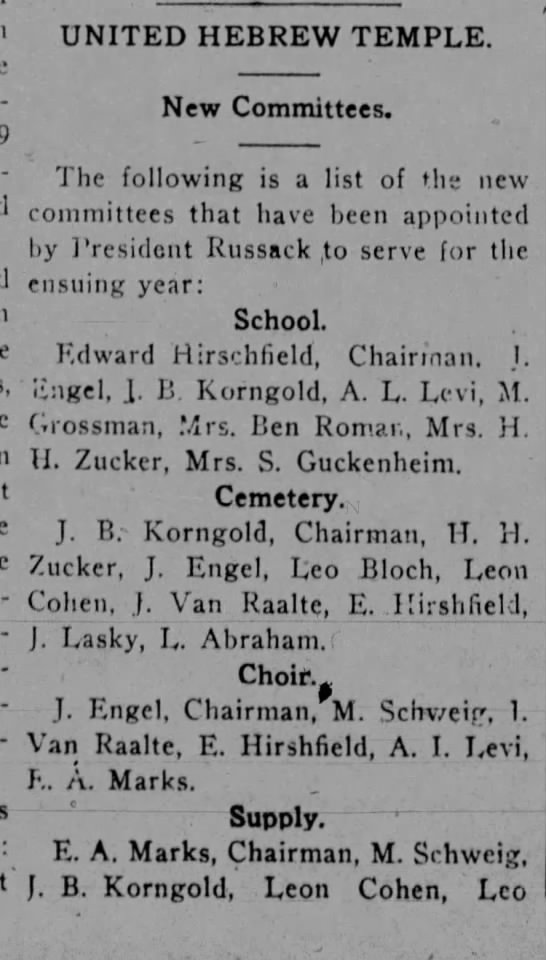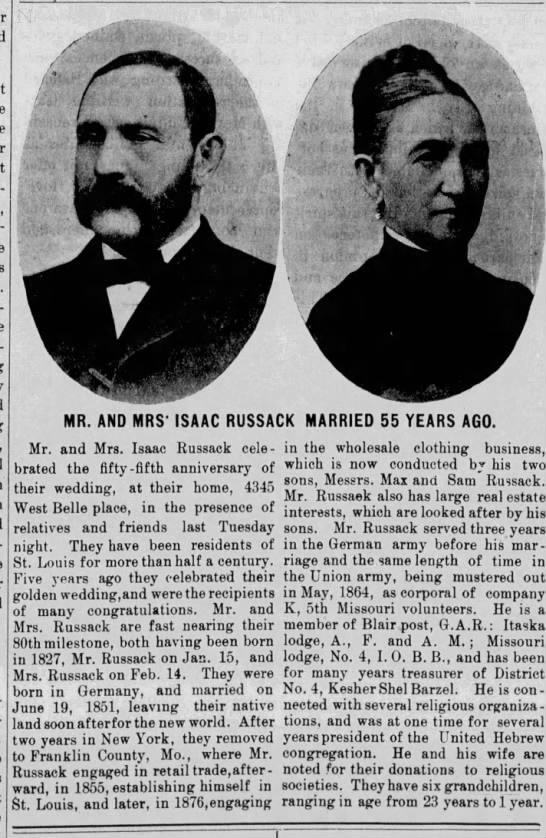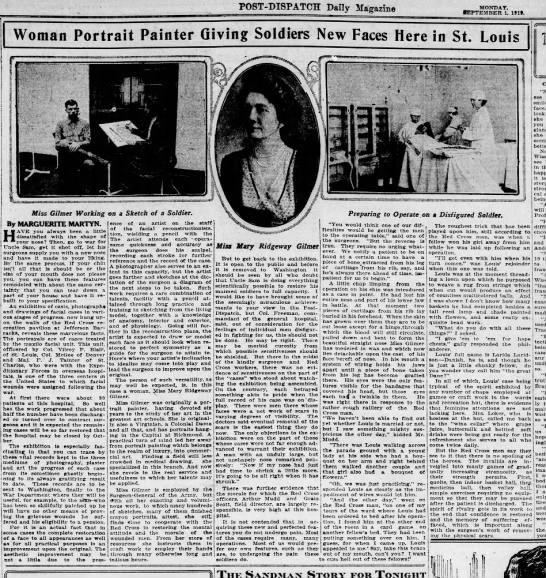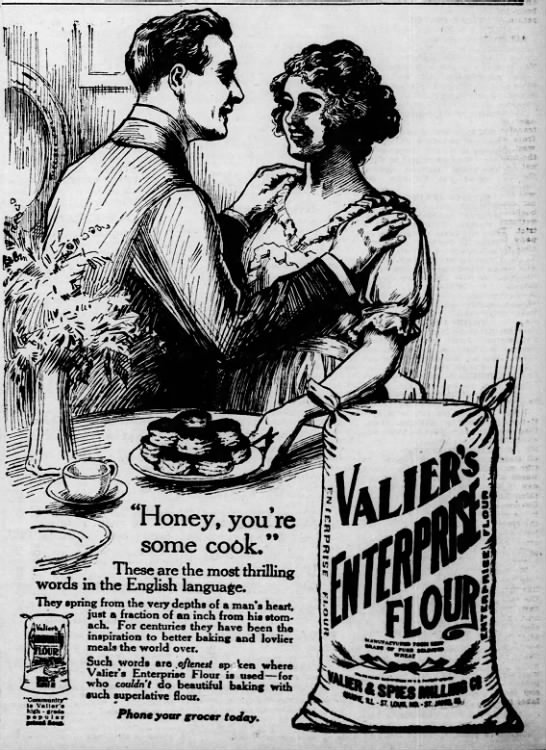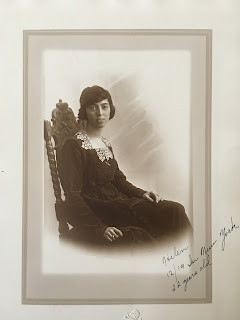This year I am sharing the 1919 diary of Helen Korngold of St. Louis, MO.
Helen is enjoying a summer break after graduation from Washington University before taking up teaching.
Apparently, in October Helen tried to fill in some blank days in the diary.
August
Monday 25
Worked around. Wrote letters in evening.
Tuesday 26
I think I spent most of this day in Granite City.
Wednesday 27
It is late in October now & I don’t remember much of what happened this day.
Thursday 28
Suppose I cleaned & ironed
Friday 29
Cleaned
Saturday 30
Fooled around
Sunday 31
Had a good time.
Notes:
Aug 26
Granite City in Madison County, IL is part of the Greater St. Louis metropolitan area. In 1906-7 a flood of 10,000 East and Central European immigrants settled there. In was the birthplace of Granitewear, granite coated tin cooking utensils that became a major U.S. industry.
http://www.granitecitygossip.com/HistoricalPagesGraniteCity.html
http://en.wikipedia.org/wiki/Granite_City,_Illinois
*****
A new source on Newspapers.com is
The Jewish Voice, published in St. Louis from 1888 to 1933, with papers available from 1888-1920.
In the social news, I learned that Helen's summer 1919 trip to Colorado Springs was to visit her uncle Joseph Frey! I have no record of his living outside of St. Louis, so he must have invited her to travel with him on vacation.
On his WWII draft card, Joseph (1884-1962) worked for the Levi Memorial Hospital as a traveling field sec. Joseph was 5'10", 185 pounds, with gray hair, brown eyes and a dark complexion. His WWI draft card showed he was a pharmacist and had black hair and eyes. He edited A Modern View, a Jewish newspaper. I do not find that he was married.
I quickly discovered articles written by Helen for the Junior Auxiliary Council of Jewish Women, articles about her father's involvement in United Hebrew Temple, her Aunt Beryl Frey's musical presentations, and poetry and articles published by her mother Eva Frey Korngold.
Our Home
Eva Korngold, St. Louis
(Sung to the air of America.)
The Jewish Voice, Nov. 11, 1915
Our temple let it be,
A home to you and me. All through, our lives.
Here let us learn to love,
And worship Him above.
Let praises fill the air Of God our King.
When sorrow fills our soul
And friends with us condole,
Oh, give us strength.
Turn not away Thy face,
But with Thy endless grace,
Help us to bear our woes,
Throughout our days.
When joy spreads far its light,
Throughout the world so bright,
Glory be Thine.
Loud let us then proclaim,
And glorify Thy name,
Let voices ring with cheer,
From far and near.
Let then our temple hold,
And gather in its fold, Those of our faith.
And then from out our ranks,
We'll offer up our thanks,
For strength or joy that's ours,
To Him above.
You and I
By Eva Korngold
The Jewish Voice, July 21, 1916
If you would always say
Kind words the livelong day,
And I would always smile and bow
A world of friends we'd have by now. I
f you would always do
What you think good and true,
And 1 would follow close behind
A paradise on earth we'd find.
If you would thankful be
For gifts that God gave thee,
And in practice would put mine
The sun for us would always shine.
Our Moses
Eva Korngold
(Poem for Children.)
07 Apr 1916
The Pessach week is close at hand,
Which we celebrate throughout the land,
With feasts and prayers and hope and song
In the land of Zion to be ere long.
We think of Moses, the wonderful boy
Who filled our nation with so much joy;
We picture him into the water thrown,
Thank God, he was not left alone.
Sis' Miriam, with heart so good and true,
Walked back and forth the long day through,
'Till Pharaoh's offspring With maids so gay.
Came dancing along that very same way.
The golden-haired Moses in the basket they spied,
'Twas the voice of God, that through him cried,
That touched their hearts so big and fine,
To save from death this child divine.
Then Miriam with joy stepped forth to say,
That she a nurse could fetch that day.
And off she flew to bring his mother.
Who nursed the child as could no other.
To the palace in haste, the child was brought.
Where a home for him the princess sought.
The king, to please his daughter so fair
Allowed the child to stay right there.
Now he received much love and care,
Mid all that helped him well to fare,
He grew to be a man so great,
That none like him e'er lived to date.
In the ways of God he lived and walked,
Of Him so much he wrote and talked.
The fetters of the Jews he broke asunder
Great things he did to make them wonder.
When plague after plague was of no avail
It seemed as if his scheme would fail,
To lead the Jews from out the land
Where they were slaves at the king's demand.
But soon through the sea the Jews were led,
And into the desert with them he fled.
They had no time their bread to bake,
Unleavened food were glad to make.
For oven they used the sun so hot.
And all were pleased to bear their lot,
For now they felt that they were free,
As all the people on earth should be.
For years and years they lived in peace,
Until their worship of God did cease,
And now in memory of Moses' great feat,
The matzos in freedom and peace we eat.
ON SHABUOTH
By Eva Korngold
The Jewish Voice, June 2, 1916
Like angels that are pure and heavenly
The messengers and servants of our God;
Like sun and moon and stars and all that's bright,
The wonder works that give our world delight;
Like budding trees and flowers of early Spring
That bid fair promise to blossom and to bloom
Just so pure, so radiant and full of hope.
This day with joy that words can never paint.
We see upon the altar of God and man
Our little children ready to embrace
The faith that stands for love, for truth, for hope;
They pledge the Ten Commandments to obey,
The laws that rule and govern all the world
Which on this day the Lord our God gave us.
The duties of the Jew toward God and man
Has been religiously on them impressed,
And when the holy blessings are pronounced
On heads that low before our Father, bow,
May the voice of Him be heard to say Amen.
June 9, 1916
















